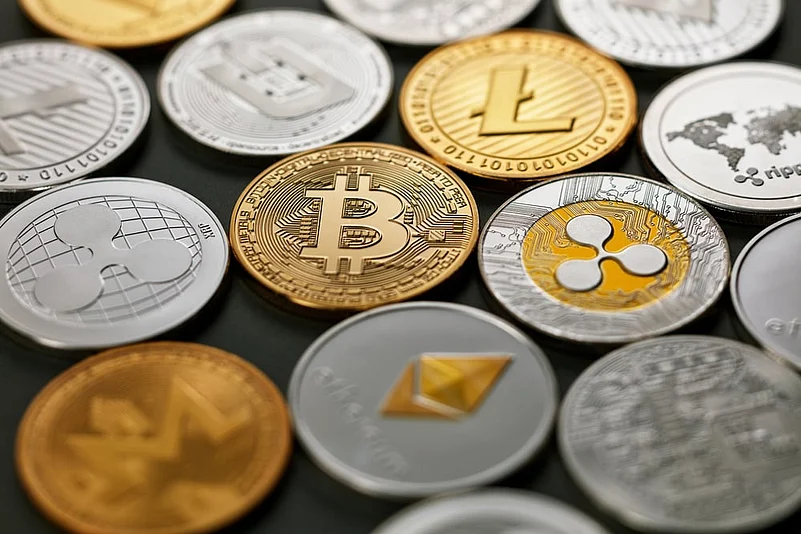Bitcoin fees have exceeded those of Ethereum for three consecutive days as miners and traders prepare for the upcoming Bitcoin halving and the introduction of Runes on Bitcoin, albeit to a lesser extent. On April 17, Bitcoin miners collected $7.47 million in fees, nearly $160,000 more than the $7.31 million paid to Ethereum stakes, according to Crypto Fees.
However, Ethereum maintains a significant lead in average fees over 7 days, with $8.55 million compared to Bitcoin's $7.57 million. Bitcoin transaction fees are determined by the size or data volume of the transaction and block space demand at the time of the transaction request. The increase in Bitcoin (BTC) fees comes at a crucial time for Bitcoin miners, as the April 20th Bitcoin halving event will reduce mining rewards from 6.25 BTC ($398,000) to 3.125 BTC ($199,000).
Miners will therefore rely more on higher fees and a continued increase in Bitcoin's price to compensate for the revenue drop they will experience, at least in the short term, from the halving. Meanwhile, the introduction of NFT-like Ordinals engravings in January 2023 has helped Bitcoin miners earn more revenue from transaction fees, and a new revenue stream will become available when Runes, a new Bitcoin token standard, is released during the halving at block 840,000.
DAO Secures Rights to Iconic Doge Meme Image
Own The Doge, the decentralized autonomous organization (DAO) associated with the Shiba Inu meme behind the Dogecoin (DOGE) token at $0.15, announced that it had secured legal rights to the iconic image. They stated that with more clarity around the Doge image copyright which had seemingly been a free-for-all for years, there were opportunities for partnerships with big brands.
The project mentioned they reached out to Sato roughly three years ago and were able to negotiate a deal to purchase the rights to Kabosu’s image by working with legal experts in Japan and the United States, Working with Sato and others, the project has already released a documentary on the history of Doge and the evolution of the image in and out of the crypto space. The basis for the Doge image dates back to 2010 when Sato took a casual picture of Kabosu sitting on a yellow sofa in her home in Japan. according to Cointelegraph.
Monarch suggested he had been the first person to use the term ‘Doge’ on social media, eventually leading to additional memes, the Dogecoin token, and various crypto-themed merchandise. Tridog stated that the purchase of the licensing rights likely wouldn’t impact the Dogecoin Foundation or the meme token, which continues to use the image. Kabosu will celebrate her 19th birthday on Nov. 2 at a celebration in Japan. Though old for a dog, she has some catching up to do: the world’s oldest Shiba Inu lived to be more than 26 years old.
Akira Ransomware Nets $42M from 250+ Companies, FBI Reports
Akira, a year-old ransomware group, breached over 250 organizations and extracted approximately $42 million in ransomware payments, top global cybersecurity agencies have warned. Investigations by the United States Federal Bureau of Investigation (FBI) revealed that the Akira ransomware has been targeting businesses and critical infrastructure entities in North America, Europe, and Australia since March 2023. While the ransomware initially targeted Windows systems, the FBI recently discovered a Linux variant of Akira as well.
The FBI, in collaboration with the Cybersecurity and Infrastructure Security Agency (CISA), Europol’s European Cybercrime Centre (EC3), and the Netherlands’ National Cyber Security Centre (NCSC-NL), issued a joint cybersecurity advisory to 'disseminate' the threat to the public. The ransomware group demands payments in Bitcoin (BTC) from the victim organizations to restore access. Such malware often disables security software after gaining access to avoid detection.
The FBI, CISA, EC3, and NCSC-NL recommend continuously testing your security system, at scale, in a production environment to ensure optimal performance against the MITRE ATT&CK tactics identified in this advisory, the agencies concluded. The report noted that some of the data extracted by the malware included information within the directories of the Binance and Coinbase exchange applications and the Trust Wallet application.









